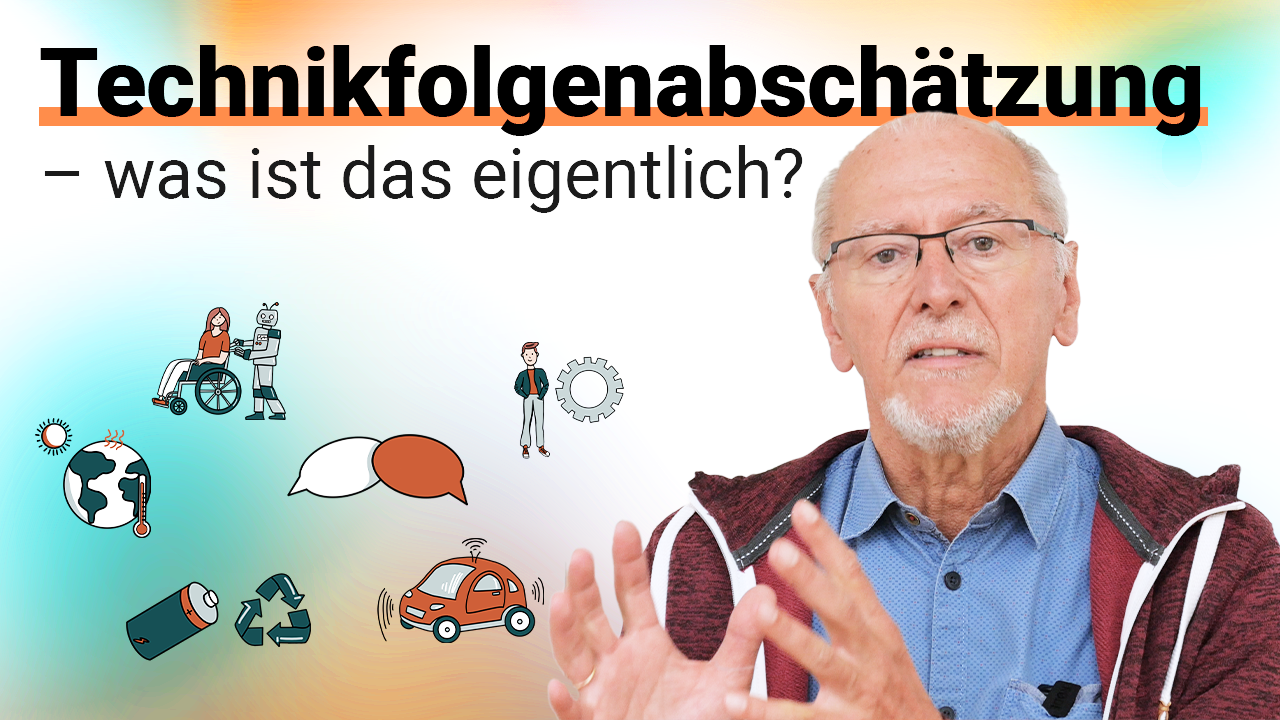What is technology assessment?
Technological progress has massively changed us as individuals, society as a whole, but also the planet itself. It enables modern lifestyles and creates prosperity, for example, through new technologies in the fields of energy, digitalization, mobility, and medicine.
However, the consequences are not only positive: Think of human-induced climate change, the debates about the final disposal of radioactive waste, or the spread of manipulated information on the internet.
But how can we recognize the effects of technology in good time? What do we need to pay attention to when dealing with the many possible futures? And how can this knowledge be communicated in such a way that it can be used for the good of all?
This is where technology assessment – often abbreviated to “TA” – comes in. It is motivated by the desire to use scientific methods to identify the opportunities and risks of new technologies before they take effect.
Thematic scope of TA
The diversity of technology assessment is reflected in the broad research portfolio of ITAS:
Key features of technology assessment:
- The subject of its research is all areas of scientific and technological progress and the associated social developments.
- It employs scientific methods and bases its analyses on findings from research.
- It is concerned with research for action that supports public opinion forming and political decision making with its findings.
- It aims to help shape future technologies and innovations in line with social values such as democracy and sustainable development.
- It conducts forward-looking research, that is, it uses future-oriented approaches and methods.
- Its approach is inter- and transdisciplinary, which means that researchers from different disciplines work hand in hand and also involve citizens and practitioners.
- It understands technology consequences not simply as the consequences of technology, but as the interplay of technology and people. Ultimately, it is people who develop and use technologies.
With newly developed degree programs and the possibility of doing a doctorate and habilitation, technology assessment is gradually developing into an academic discipline.
However, its orientation makes it much more than a purely academic subject. Because in addition to scientific quality, the effectiveness of its findings has always been part of TA’s self-image.
Further literature:
Grunwald, A.
Technikfolgenabschätzung. Einführung. 3., vollständig aktualisierte und erweiterte Auflage, Baden-Baden: Nomos, 2022, 283 S., ISBN 978-3-8487-8498-1
more about the book (only in German)


